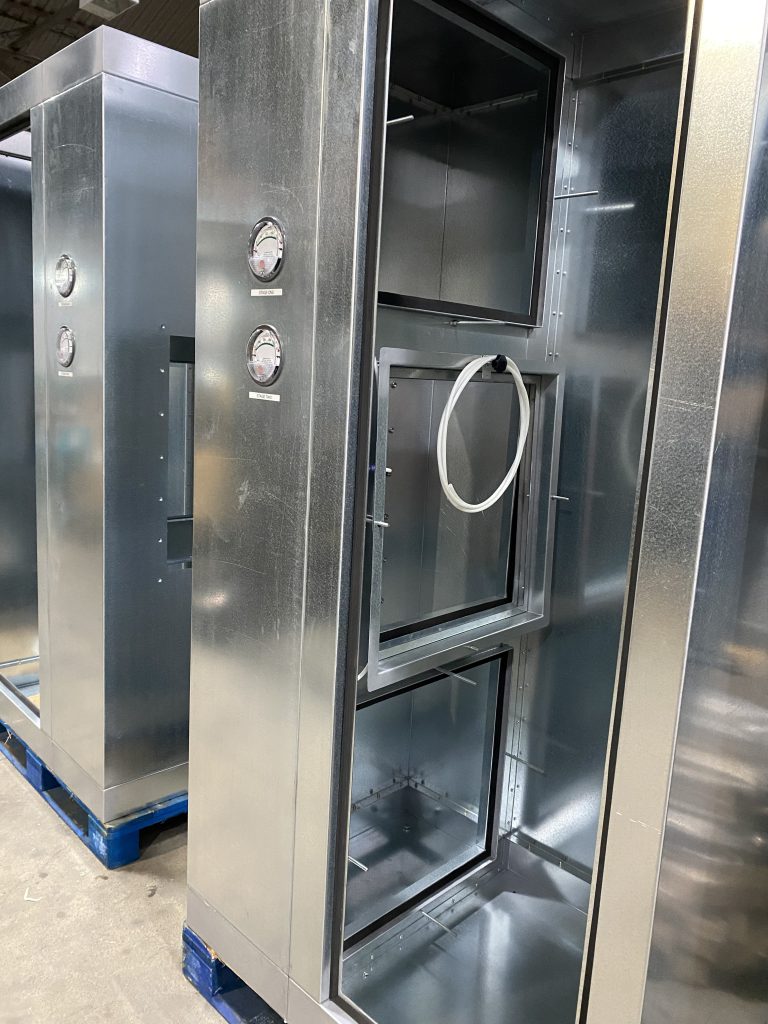
The Health and Safety Executive mandates LEV testing to ensure dust, fume, and ventilation systems effectively remove hazardous particles as intended.
LEV testing, or Local Exhaust Ventilation testing, ensures your LEV system functions correctly and complies with health and safety regulations. At RPL, our qualified engineers, holding the OHS P601 Proficiency Module, provide thorough testing across the UK to maintain the safety and efficiency of your system. Book an LEV test today.
As per the Health and Safety Executive (HSE), the testing of your LEV (Local Exhaust Ventilation) systems is a mandatory activity to ensure that you’re dust extraction, fume extraction and ventilation systems are working as initially intended and are still removing hazardous and/or toxic particles from the air, effectively.
Full inspection and testing reports cover every aspect of each system tested, using tindle lamps and equipment calibrated every year to ensure accurate records for our customers. Don’t allow your industry to be at risk.
From this we will report our findings and costs for the work required to bring your system back to design parameters. We will costs for labour materials and installation access etc, depending upon your requirements, should you simply require a set of replacement filters we can supply spares only for your own staff to install should you prefer.
LEV testing plays a crucial role in maintaining a safe and compliant working environment. It ensures your systems meet health and safety legislation and adhere to the requirements of your company’s insurance policies. Regular testing is essential to verify that your dust, fume, and ventilation systems continue to function as intended, effectively removing harmful particles from the air.
If your systems are upgraded, relocated, or serviced in any way, testing afterwards is a must to guarantee they still operate safely and efficiently. By working with RPL, we can create a tailored LEV testing plan that fits your needs, ensuring you stay compliant and your workplace remains a safe environment for everyone.
Our LEV tests strictly follow HSE guidance and our methodology to ensure your systems are safe, effective, and compliant.
We start with a thorough visual and structural check to confirm the system is clean, well-maintained, and in good working order. Key components like ducts, filters, fan belts, and alarms are inspected for functionality.
Next, we review the system’s performance against commissioning benchmarks through detailed checks and tests. Finally, we assess its control effectiveness to ensure it continues to protect against airborne contaminants, keeping your workplace safe.
The duration of an LEV test depends on factors such as the number of systems, the complexity of your setup, and the testing requirements. Tests can take anywhere from a few hours to a full day. If you’d like to understand how this affects your operations, reach out to our experts for tailored advice.
Certain types of equipment used in various industries produce hazardous substances making LEV (Local Exhaust Ventilation) testing vital for maintaining a safe and compliant workspace. These include:
LEV testing is not just about compliance with workplace health and safety regulations; it’s a critical measure to protect workers from long-term health issues. Ensuring your extraction systems are tested regularly keeps your equipment efficient and your environment safe.
Tell us your needs and we’ll endeavour to meet them, every time.

Design team with decades of experience developing unique solutions.

In-house manufacturing ensuring rapid response on all projects.

Offering installation and maintenance across Great Britain.
Why choose RPL for LEV testing & servicing?
At RPL Limited, our LEV engineers are qualified with OHS P601 Proficiency Module: Initial appraisal and thorough examination and testing of LEV systems. BOHS P602 Proficiency Module: Basic design principles of LEV systems.
Since the publication by Health and Safety Executive (HSE) of HSG258 ‘Controlling Airborne Contaminants at Work – a guide to local exhaust ventilation (LEV)’ many diligent industry owners are insisting that LEV work is only undertaken by engineers who have attained suitable training courses to ensure their systems fall within legislative guidelines.
Contact us today to arrange the testing of your equipment.
Frequently asked questions about LEV testing
Take a look at the most commonly asked questions, hopefully we give you the answer you’re looking for.
LEV systems should be tested regularly, typically every 12 months. In the UK, it is a legal requirement to carry out thorough examinations every 14 months to comply with HSE regulations. Regular testing is essential to reduce workers’ exposure to hazardous substances like dust and fumes, ensuring their safety and maintaining compliance.
If a system fails an LEV test, it means defects or potential issues have been identified. To ensure the system meets the required performance levels, recommendations will be made for necessary maintenance or repair work to be carried out. This process helps restore the system’s safety and compliance.
The test comes under COSHH (Control of Substances Hazardous to Health) Law.
An LEV test is unlikely to affect your business operations. We aim to work flexibly around your requirements to ensure minimal or no disruption. If needed, tests can be scheduled outside your normal operating hours, depending on availability. We are also happy to discuss any concerns beforehand to minimise any potential impact.
We have an array of photos and videos of all our systems, take a look at our gallery to see more of what we do.